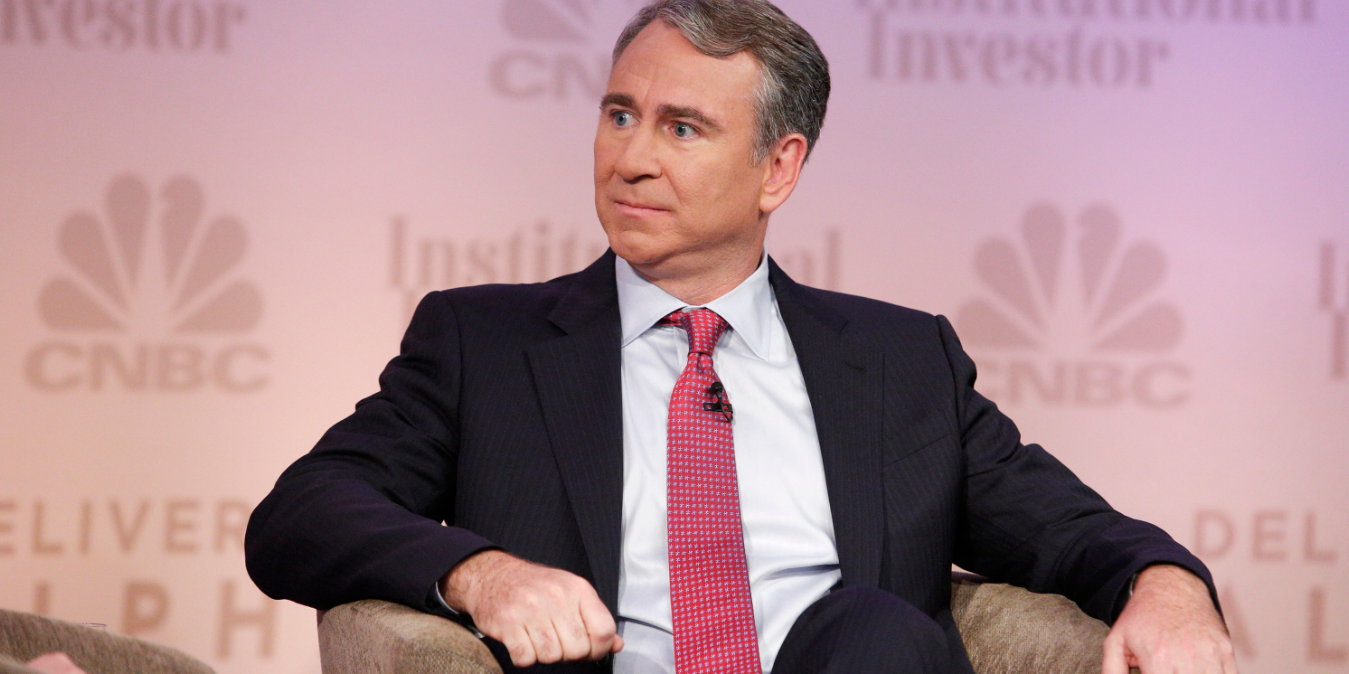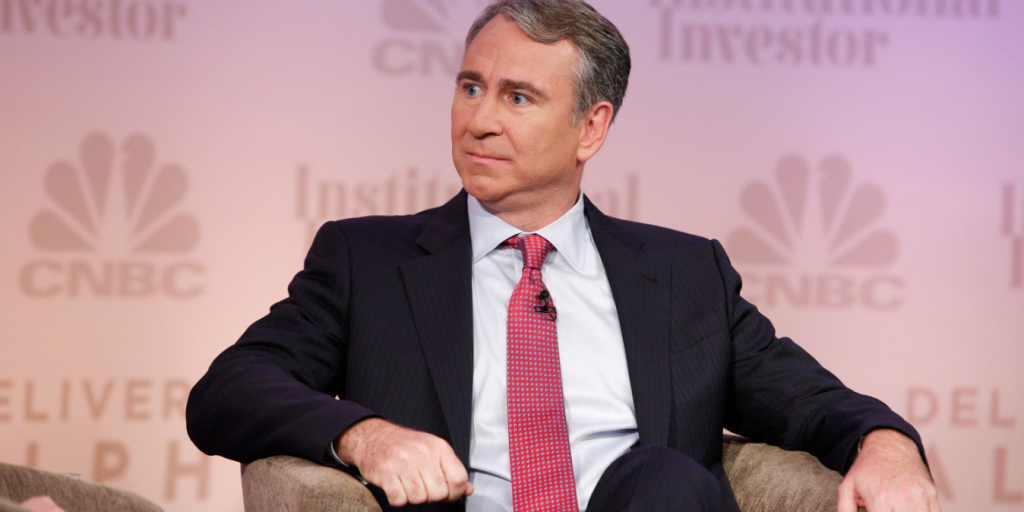
- Ken Griffin said in an op-ed that the US and its allies should help Europe wean off Russian natural gas.
- Europe increased its energy dependence on Russia, hoping to temper the country's militarism, he and historian Niall Ferguson wrote.
- But the move has instead "funded the Kremlin's rearmament" as Russia attacks Ukraine.
Billionaire hedge fund manager Ken Griffin has a strategy to beat Russian President Vladimir Putin: End Europe's reliance on Russia's natural gas.
In an op-ed for the Wall Street Journal, the founder and chief executive officer of Citadel, along with Niall Ferguson of Stanford University's Hoover Institution, said Europe has been increasing its energy dependence on Russia to temper Putin's militarism, but instead it has "funded the Kremlin's rearmament."
"Without Russian energy, European citizens would struggle to get through winter," Griffin and Ferguson wrote, just hours before Russia's attack on Ukraine sent oil and gas prices soaring. "Mr. Putin has long understood the leverage this gives him."
To solve the problem, the op-ed suggested a game plan.
First, the US should encourage Europe to reduce its reliance on Russian gas. Then it should start producing more gas, not less, so it has what's "needed to wean Europe off Russian pipelines."
Lastly, the US should push its friends and allies — like major gas producers Australia and Qatar — to be long-term suppliers to Europe. The more the sources, the safer Europe's energy supply, the op-ed said.
Griffin and Ferguson likened the current situation to the Soviet blockade of Berlin in 1948, in which the US and UK responded by airlifting supplies to the German city, eventually breaking Russia's hold.
"If planeloads of food can get the better of Stalin, boatloads of gas can get the better of Mr. Putin," the two wrote.
The conflict between Russia and Ukraine has been heating up for weeks, and it recently took a turn for the worse. Late Monday, Russia deployed its troops into breakaway areas of Ukraine, and the West responded with an initial round of economic sanctions. Then Thursday, Russia launched a full-scale attack on the country, and G7 leaders discussed responding with "severe sanctions."
But sanctions, according to Griffin and Ferguson, "would come at a tremendous cost to Americans without addressing the long-term source of Mr. Putin's power," meaning Europe's dependence on Russian natural gas.
"Tougher U.S. financial sanctions would only further reduce the attractiveness of the dollar as a reserve currency," the op-ed warned. "Withholding U.S. technology from Russia would inflict both direct and indirect damage on American companies, which have many international competitors, not least in China."

